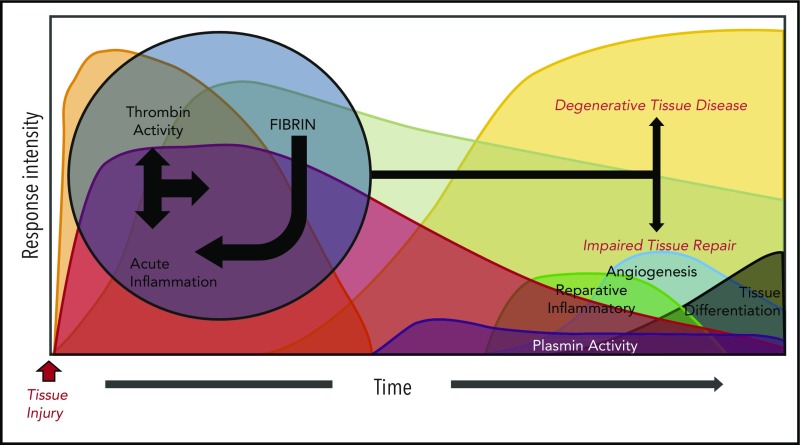Figure 2.
A dysregulated acute phase response leads to destructive inflammation and impaired tissue remodeling. Genetic or environmental dysregulation of coagulation can provoke degenerative tissue disease and impair tissue repair through a multitude of mechanisms. Reciprocally, extreme and prolonged liberation of inflammatory cytokines leads to not only local, but also systemic activation of cellular inflammatory pathways, prolonging thrombin activation. Alternatively, impaired fibrinolysis (plasmin activity) prolongs the presence of fibrin, delaying the resolution of its inflammatory properties. Regardless of the mechanism, the prolonged acute inflammatory response interferes with transition to reparative inflammatory processes, evoking impaired tissue repair and degenerative tissue disease.

